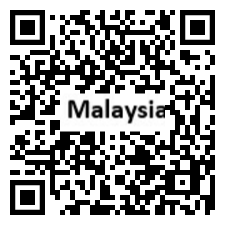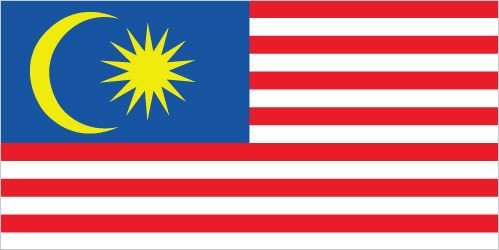Introduction
Background
The British secured and colonized the area that is now Malaysia during the late 18th and 19th centuries. In 1948, the British-ruled territories on the Malay Peninsula (except Singapore) formed the Federation of Malaya, which became independent in 1957. Malaysia was formed in 1963 when the former British colonies of Singapore, as well as Sabah and Sarawak on the northern coast of Borneo, joined the Federation. Singapore was expelled in 1965.
Geography
Area
total : 329,847 sq km
land: 328,657 sq km
water: 1,190 sq km
Climate
tropical; annual southwest (April to October) and northeast (October to February) monsoons
Natural resources
tin, petroleum, timber, copper, iron ore, natural gas, bauxite
People and Society
Population
total: 34,564,810
Ethnic groups
Bumiputera 63.8% (Malay 52.8% and indigenous peoples, including Orang Asli, Dayak, Anak Negeri, 11%), Chinese 20.6%, Indian 6%, other 0.6%, non-citizens 9% (2023 est.)
Languages
Bahasa Malaysia (official), English, Chinese (Cantonese, Mandarin, Hokkien, Hakka, Hainan, Foochow), Tamil, Telugu, Malayalam, Panjabi, Thai; note - Malaysia has 134 living languages - 112 indigenous languages and 22 non-indigenous languages; in East Malaysia, there are several indigenous languages; the most widely spoken are Iban and Kadazan
Religions
Muslim (official) 63.5%, Buddhist 18.7%, Christian 9.1%, Hindu 6.1%, other (Confucianism, Taoism, other traditional Chinese religions) 0.9%, none/unspecified 1.8% (2020 est.)
Population growth rate
0.99% (2024 est.)
Government
Government type
federal parliamentary constitutional monarchy
Capital
name: Kuala Lumpur; note - nearby Putrajaya is referred to as a federal government administrative center but not the capital; Parliament meets in Kuala Lumpur
Executive branch
chief of state: King Sultan IBRAHIM ibni al-Marhum Sultan Iskandar (since 31 January 2024)
head of government: Prime Minister ANWAR Ibrahim (since 25 November 2022)
Legislative branch
description: bicameral Parliament of Malaysia or Parlimen Malaysia consists of:
Senate or Dewan Negara (70 seats; 44 members appointed by the king and 26 indirectly elected by 13 state legislatures; members serve 3-year terms)
House of Representatives or Dewan Rakyat (222 seats; members directly elected in single-seat constituencies by simple majority vote to serve 5-year terms)
Economy
Economic overview
upper middle-income Southeast Asian economy; implementing key anticorruption policies; major electronics, oil, and chemicals exporter; trade sector employs over 40% of jobs; key economic equity initiative; high labor productivity
Real GDP (purchasing power parity)
$1.152 trillion (2023 est.)
$1.111 trillion (2022 est.)
$1.023 trillion (2021 est.)
Real GDP per capita
$33,600 (2023 est.)
$32,700 (2022 est.)
$30,500 (2021 est.)
Agricultural products
oil palm fruit, rice, chicken, eggs, coconuts, tropical fruits, vegetables, rubber, bananas, pineapples (2022)
Industries
Peninsular Malaysia - rubber and oil palm processing and manufacturing, petroleum and natural gas, light manufacturing, pharmaceuticals, medical technology, electronics and semiconductors, timber processing; Sabah - logging, petroleum and natural gas production; Sarawak - agriculture processing, petroleum and natural gas production, logging
Exports
$312.857 billion (2022 est.)
$263.836 billion (2021 est.)
$208.217 billion (2020 est.)
Exports - partners
Singapore 14%, China 13%, US 12%, Japan 6%, Hong Kong 6% (2022)
Exports - commodities
integrated circuits, refined petroleum, natural gas, palm oil, crude petroleum (2022)
Imports
$283.601 billion (2022 est.)
$236.855 billion (2021 est.)
$186.613 billion (2020 est.)
Imports - partners
China 28%, Singapore 12%, US 6%, Taiwan 6%, Japan 5% (2022)
Imports - commodities
integrated circuits, refined petroleum, crude petroleum, coal, vehicle parts/accessories (2022)
Exchange rates
ringgits (MYR) per US dollar -
Page last updated: Wednesday, July 24, 2024




